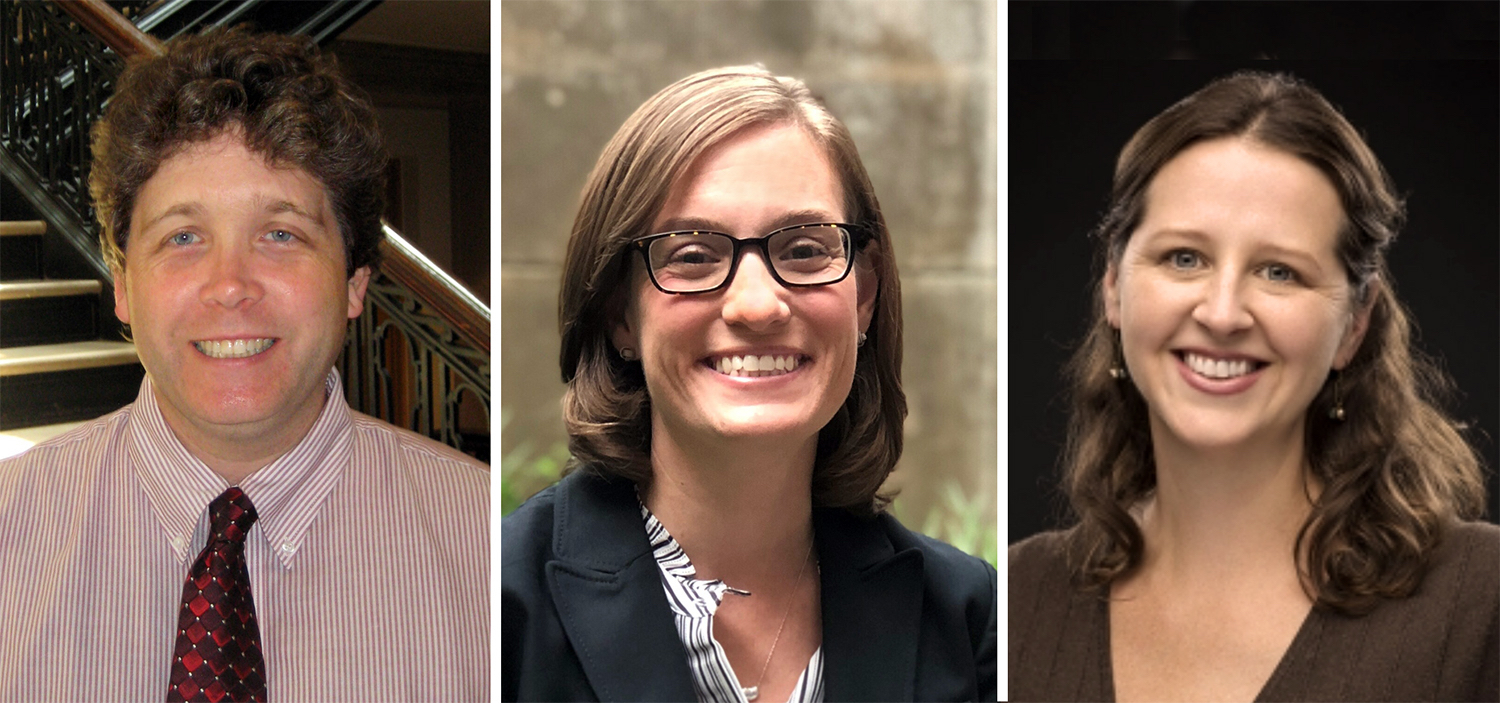Words of Encouragement
The Global Learners Program, taught by LPS English Language Programs instructors, offered more than 300 people in Ukraine English skills useful on the job hunt—and provided some normalcy and hope in the process.

Instructors in the College of Liberal and Professional Studies’ English Language Programs (ELP) are accustomed to and passionate about teaching a range of learners around the world. So when Penn Global and the University’s Online Learning Initiative (OLI) reached out with a proposal to teach displaced learners affiliated with a girls’ school in Kabul, Afghanistan, ELP didn’t hesitate.
“That was the pilot for the Penn Global Learners Program,” says Sarah Arva Grosik, ELP’s director of programs. That iteration, a collaboration between Penn Global, OLI, and an NGO in Afghanistan called 30 Birds, included the ELP class English for Leadership and Innovation, as well as courses from Penn Engineering Online, Wharton Online, and Wharton Global Youth. Twenty-two Afghani refugees enrolled, most of whom were in Pakistan at the time, awaiting resettlement in Canada.
By then, the war in Ukraine had begun. Spurred by the success of the pilot and at the encouragement of Vice Provost for Global Initiatives Ezekiel Emanuel, Penn Global put together a second cohort, this time in Ukraine and working with an NGO there, Goncharenko, which has English language and cultural centers around the country. ELP reupped, too.
In Ukraine, 312 learners participated in four sections, which started in mid-June and ran for five weeks. Most of the learning took place asynchronously—whenever the learners could fit it in—but unlike most previous course iterations, this one included a live session weekly that allowed for real-time interaction with the instructor and peers. “Building community and engagement is one of the biggest challenges in the online learning space,” says Rebecca Stein, executive director of the Online Learning Initiative. “Adding that aspect helped keep them connected.”
More broadly, the program expanded the access of this Penn resource, Grosik says. “Our instructors find these kinds of programs exciting and rewarding to be part of, because they’re a way to make this content available to more people. That’s important to us.”
Testing the Waters
Emanuel had been contemplating a program of this kind since the prevalence of online learning shot up during the pandemic. The situation in Afghanistan, followed shortly by the war in Ukraine, amplified the desire to “do more with online course offerings to serve student populations affected by conflict, natural disaster, or some other tragic circumstance,” says Scott Moore, Penn Global’s director of strategic initiatives.
Rather than start from scratch, Moore and colleagues turned to several online course providers across Penn already doing this type of instruction, including English Language Programs. They also knew that on-the-ground partners would be essential to the initiative’s success, so they teamed up with 30 Birds by way of an admitted Penn graduate student whose father had helped found a girls’ school in Afghanistan. The Ukrainian partnership came through Emanuel, who connected with the Goncharenko centers’ namesake, Oleksii Goncharenko, a Council of Europe Parliamentary Assembly member.
The pilot cohort in Afghanistan, which took place in the fall of 2022, was five hours a week for three weeks. In Ukraine the following spring, more than 1,000 people expressed interest or registered, though available staffing and resources meant availability for a fraction of that. This time, ELP decided to offer English for Career Development, presenting content focused on applying for jobs in the United States.
Learning English for Career Advancement
English for Career Development isn’t a new class. More than 2 million people have enrolled in the Coursera version, which is completely asynchronous, and about 3,000 have participated in instructor-guided versions like the one in Ukraine, with its one synchronous meeting each week.
Because the course is intended for people with an intermediate level of English proficiency, it goes into detail on subjects like building a resume, writing cover letters, and going through job interviews. “It’s different than a traditional English language course,” says Kate Kinney, ELP testing and programs manager, who taught one of the sections. It’s partially because of who the participants are, “a broad range of learners, from those just starting college to people already immersed in professional lives,” she says.
In Kinney’s section, she had stay-at-home moms, lawyers, doctors, a journalist from Kyiv. “Their stories are so powerful,” she adds, recalling one who described relocating to Poland after the war directly affected his home in Ukraine. “In our discussions, everyone is talking about the future. They’re getting practical skills, but you can also hear their passion. During times of conflict, educational institutions and the process of learning can anchor learners in a normalcy that has been disrupted by war.”
That makes sense to ELP Director Jack Sullivan, who sees this program—which included discussion boards and breakout rooms for participants to continue their asynchronous work together—as the next step in the progression of online learning. “It’s an evolution of the concept of the teacher’s role, of what a classroom is,” Sullivan says. “It’s an evolution of what this type of online program is and what it can be.”
Though there’s interest on the part of both learners and teachers to run another cohort, that’s up in the air due to questions of funding. Even if it can’t continue, Sullivan, Kinney, Grosik, and their colleagues say any effort to offer some sense of normalcy during a war, to offer even a little light in a dark time, has been worthwhile. “The impact may be small,” Grosik says, “but it’s a small way we can give a little hope.”



